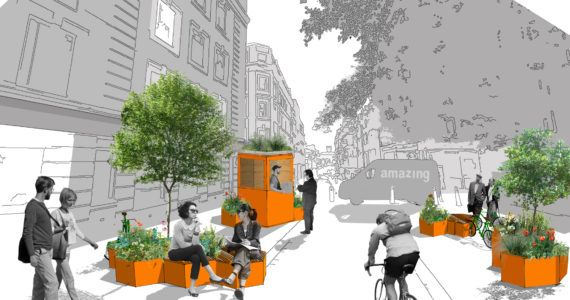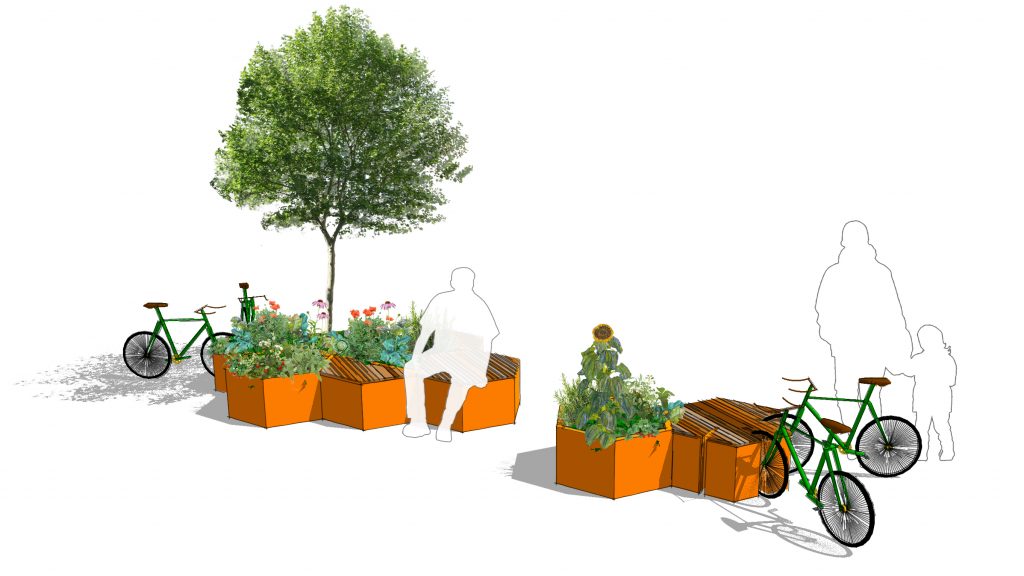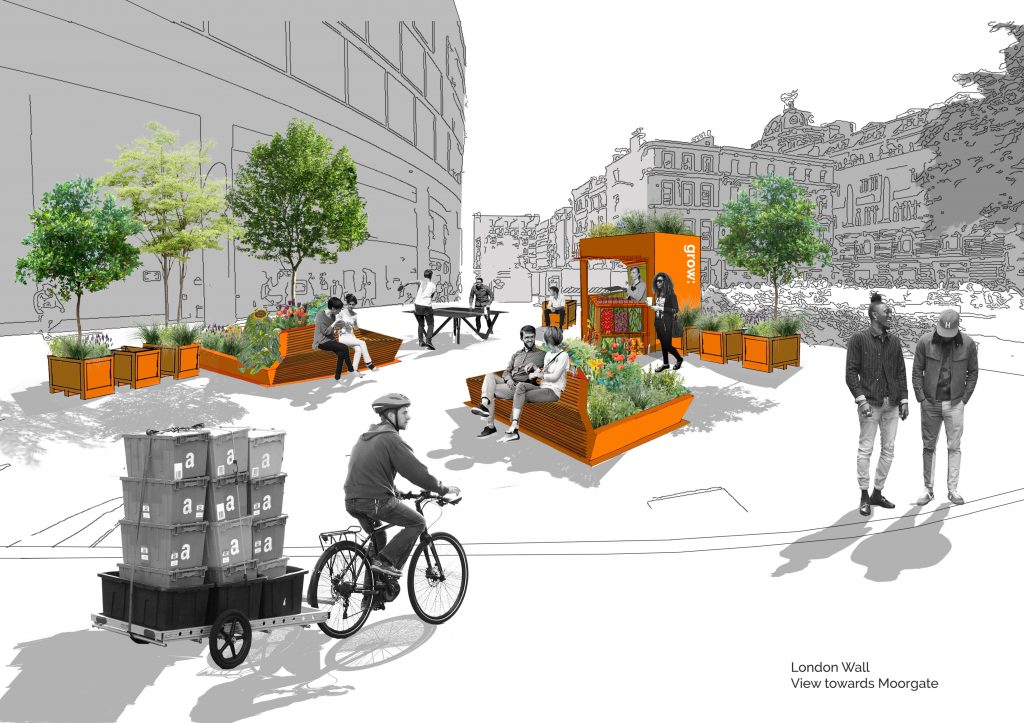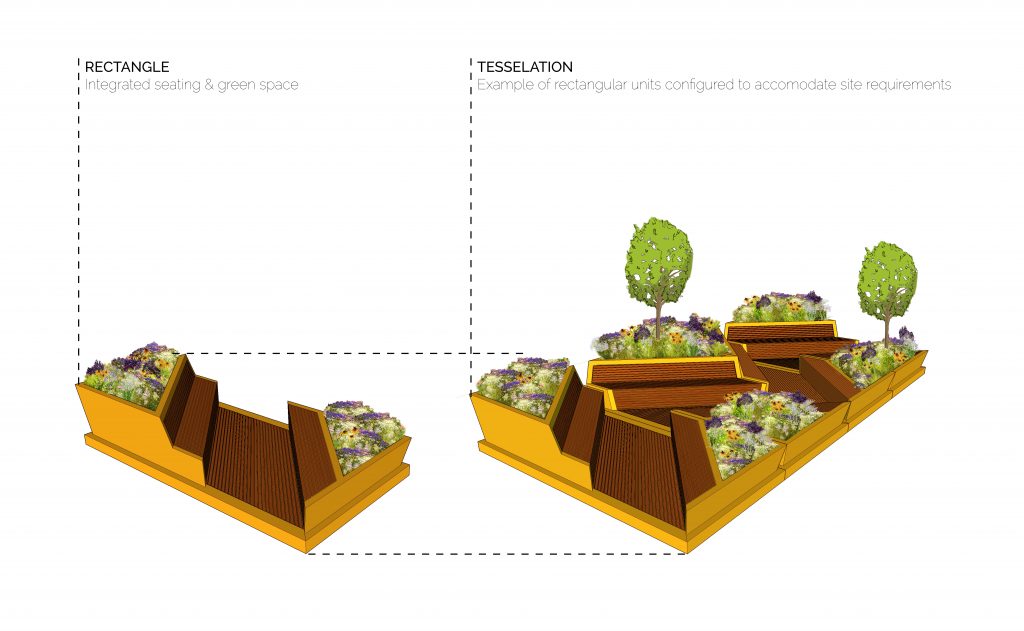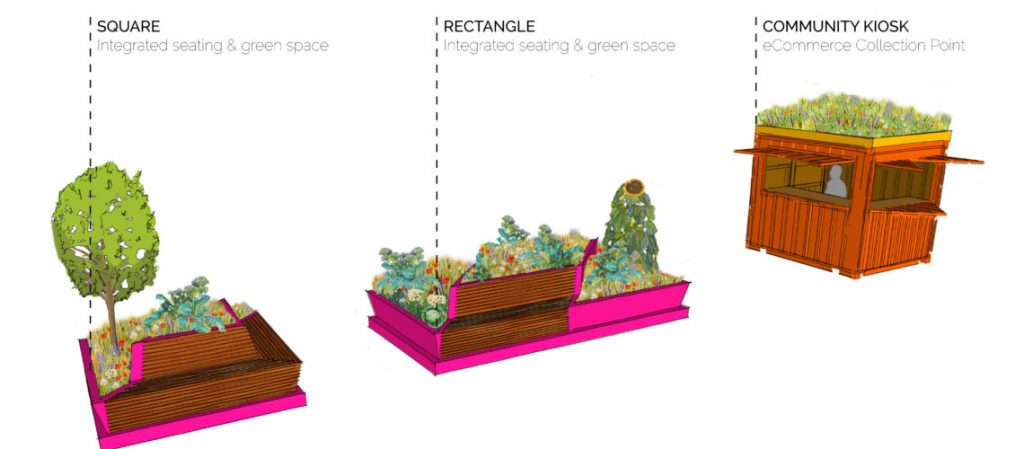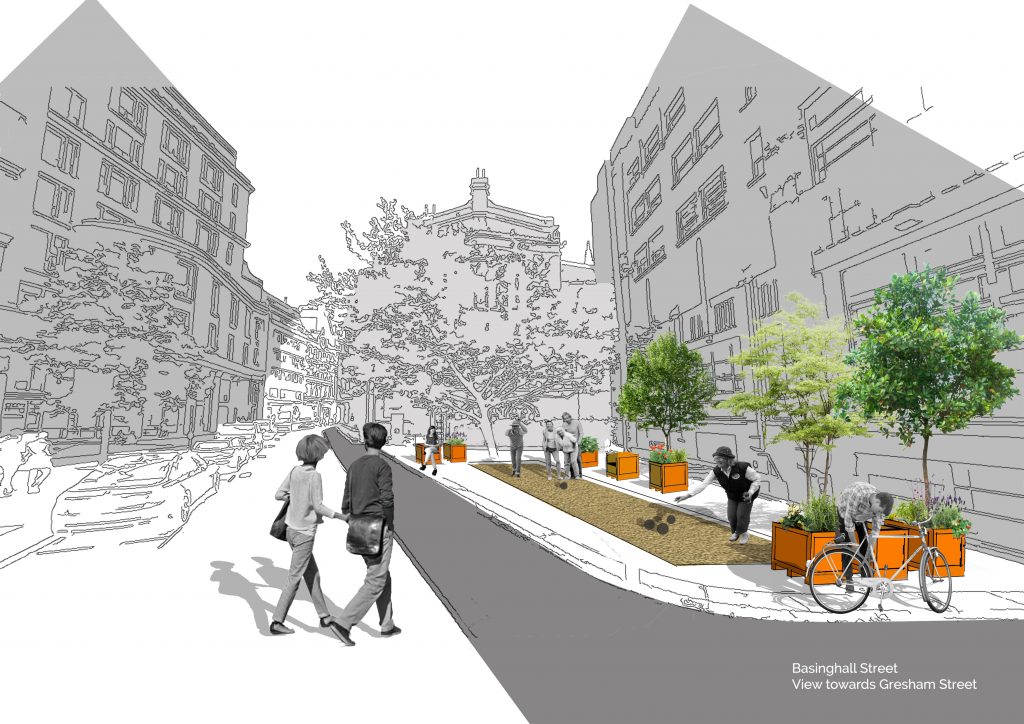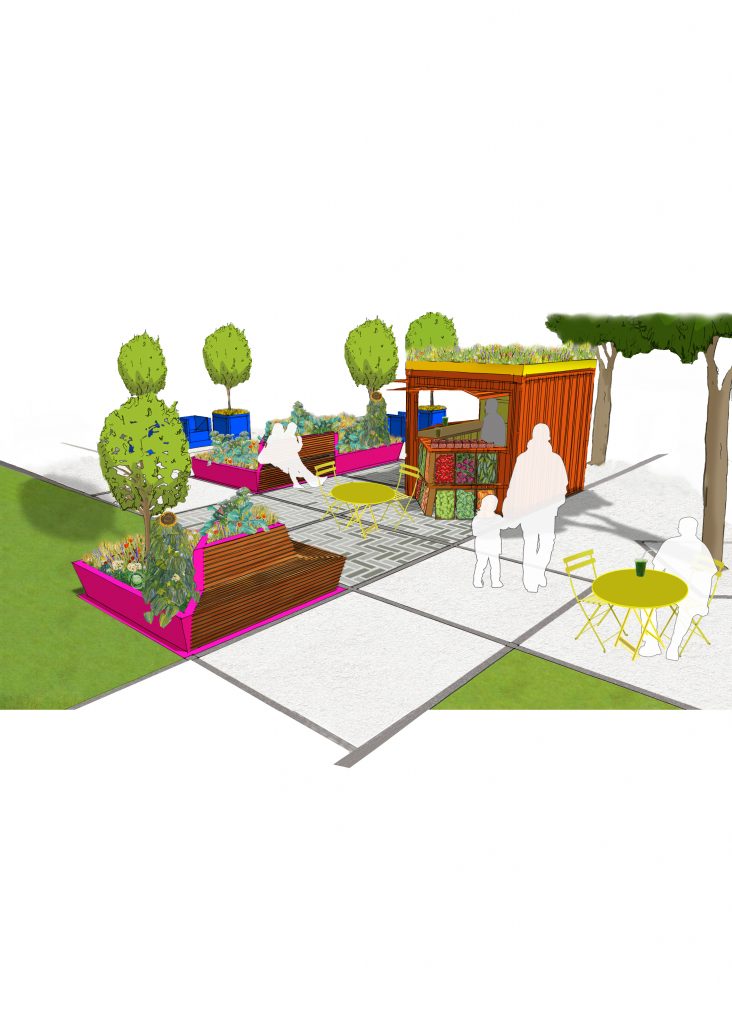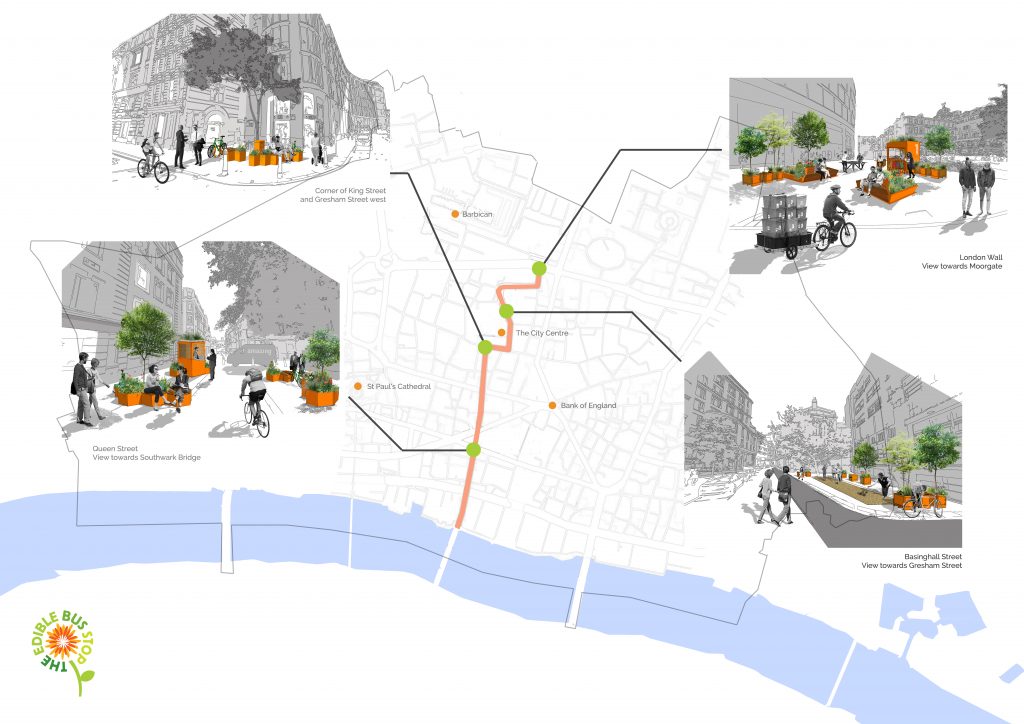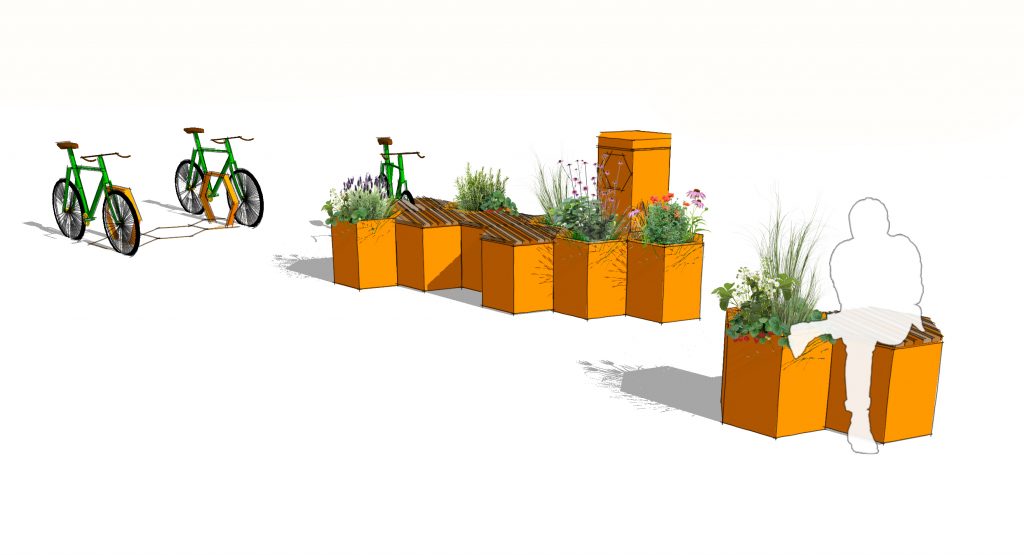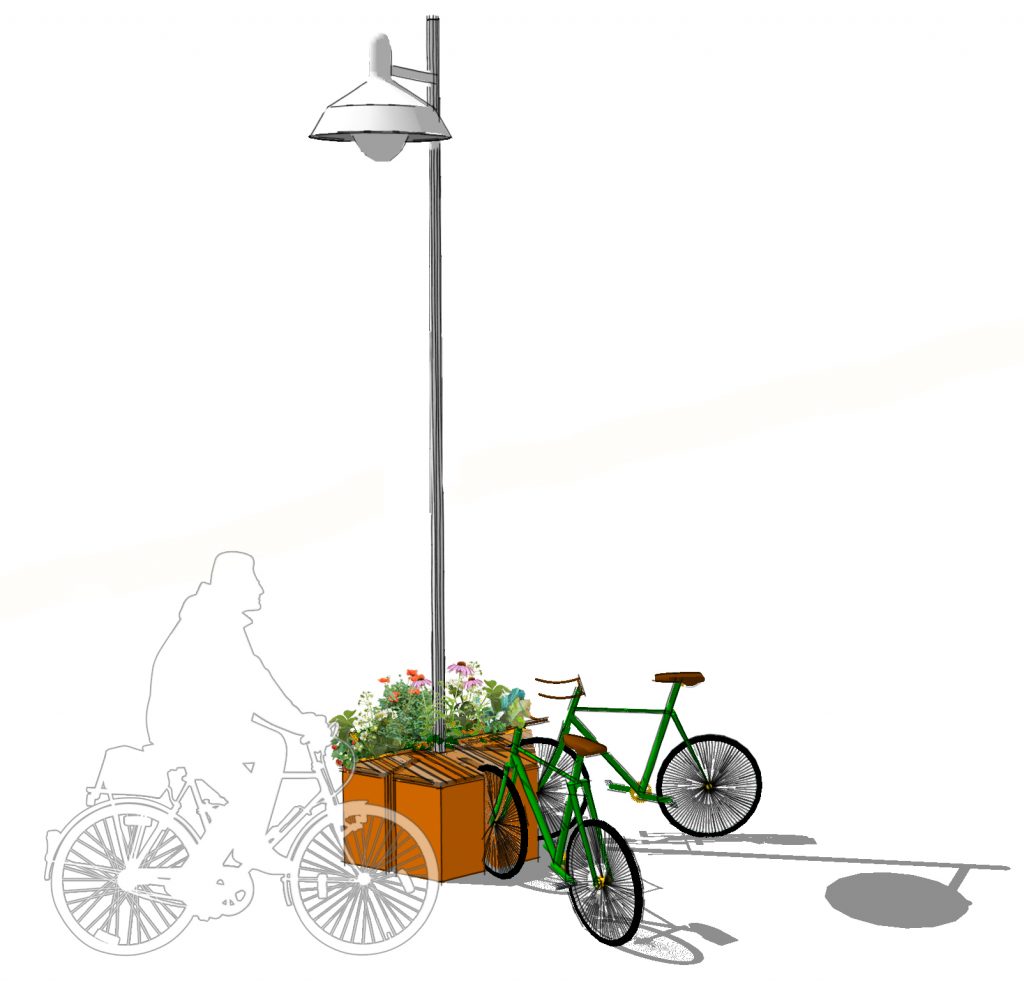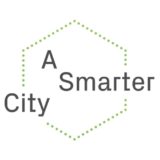GROW:
CLIENT
VARIOUS
SECTOR
PUBLIC REALM
STATUS
IN DEVELOPMENT
GROW:CITY
SHORTLISTED ENTRY FOR THE CITY CENTRE’S
SMART GREEN SPACES IDEAS COMPETITION MAY 2017
Grow: is a system of portable modular components, with biophilic design at their core that provides accessible and active green spaces in the City. They foster opportunities for social interaction and enhance biodiversity. These instant pocket parks and community kiosks can be positioned into appropriate public realm sites. The units tessellate to fit any space and can easily be relocated should that be required. The sites present a social destination, incorporating enterprise by integrating collection points for eCommerce purchases, thereby greening the ‘last mile’ in the square mile. The concept utilises landscape architecture for the common good.
Biodiversity grows. Cohesion grows. Small business grows.
The portable units deliver an instant transformation, introducing flexible growing spaces and durable modern street furniture, which combines seating and cycle parking with the planted areas. This provides places to congregate and according to the suitability of the site, can include adult play areas; such as boules pitches or ping-pong tables. The focus centres on the greening of the location, adding another layer to greyer areas of the public realm, and in turn, encourages people to interact with each other. These sites can provide gateways and green links to existing pocket parks and secluded squares. The location of the units creates an identity for an otherwise non-planted area, such as an expanse of paving or greening transport corridors. They provide innovative and site-specific planting that act as natural way-finding green routes and can work with the heritage and brand of an area.
The kiosk element of the scheme acts as pick up and drop off points for eCommerce parcels etc, reducing local congestion and the pollution associated, in turn, addressing the issue of the ‘last mile problem’ through consolidating the delivery chain. This has a vital impact on the improvement of air quality and ease of flow for vehicles in often-congested areas. The kiosks can be multifunctional by also offering everyday services (such as newsagents, key cutting & café’s) responding to local needs and footfall.
The benefits of urban green spaces, small and large, have been repeatedly demonstrated. Our experience of delivering planted public realm schemes, in both temporary and permanent settings, including two Mayor of London ‘Pocket Parks’ concurs with this growing body of evidence. Accessible design-led active green spaces have a significant positive impact in the city. The benefits range from physical and psychological health, via the raising of collective serotonin levels associated with greener areas, to numerous environmental and biodiversity improvements. By increasing opportunities for social interaction and real-life engagement with an individual’s surroundings, away from their smart phone / tablet / computer, a genuine sense of well-being can be fostered. The greenery improves perceptions of safety and can facilitate a reduction in anti-social behaviour – creating longer-term fiscal advantages for local government and businesses alike. Local residents and businesses can be invited to help maintain the gardened spaces. This can be enabled through the creation of gardening hubs, or via CSR initiatives by partnering with corporate bodies that have offices nearby. As many of us spend most of the day seated, gardening opportunities are not only good for the mind but also the body, providing gentle exercise. These active spaces offer locations for social cohesion and generate a sense of co-ownership and community pride.
We encourage planting easy to grow edibles as well as perennials. Herbs and berries act as pick and go foods according to the suitability of the site. Trained, established fruit trees, provide year-round seasonal interest, and opportunities for urban foraging, alongside acting as wildlife havens. Other planting elements are selected for their ability to reduce air pollution and include wildflower green roofs and ivy walls for the kiosks.
We are working with industrial designers to advance the concept towards initial prototyping and seek forward thinking corporate clients to pilot the scheme. Each unit will have built-in irrigation systems, with water tanks easing watering concerns during dry spells. According to the sites they are to be situated at, they can provide sustainable rainwater drainage, as well as water capture. The units can be levelled to fit with a locations incline and also incorporate monitoring systems that can evaluate and provide feedback on air quality etc. There is also scope for them to include charging points for electric vehicle and mobile devices.
Off-site construction ensures that each unit can offer flexibility to the sites selected and employ an efficient delivery system, via arrival on a flatbed hi-ab lorry to minimise disruption from on-site works. Their ‘temporary’ nature and portability, should address certain planning constraints, as they are in essence, ‘meanwhile’ spaces. They can be moved to ensure easy access to underground services, or relocated if required. This affords a flexibility that permanent structures cannot, whilst maintaining the robust structural integrity public realm furniture requires.
The original concept designs were conceived for the London Festival of Architecture – LFA 2016 and have been developed to meet the Smarter City competition brief.

